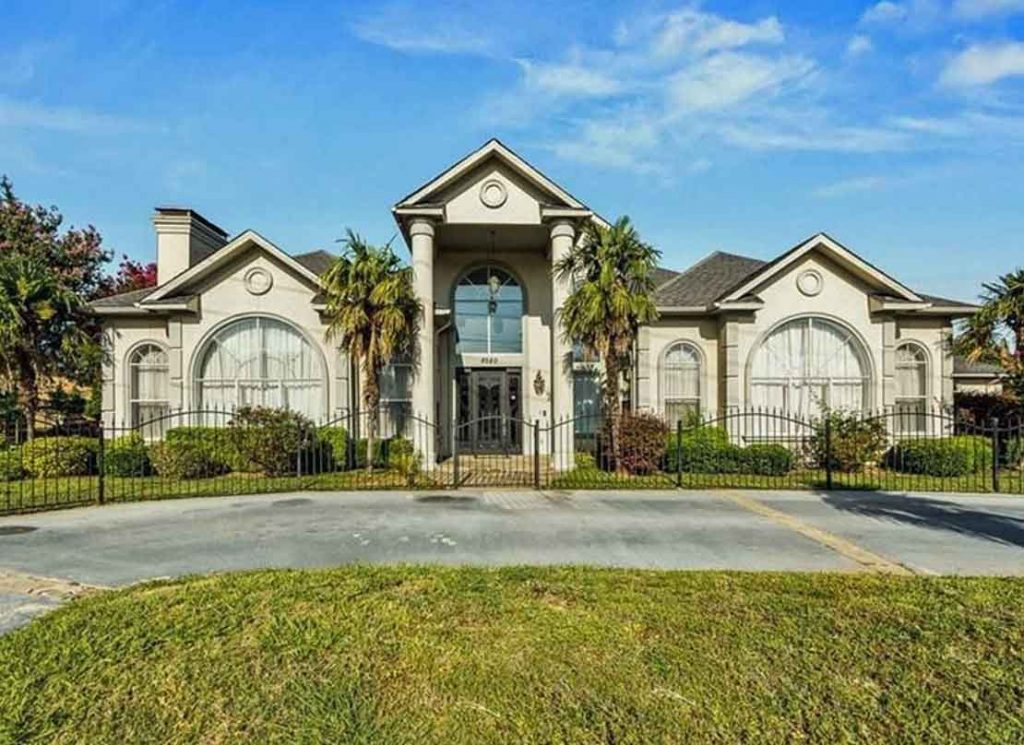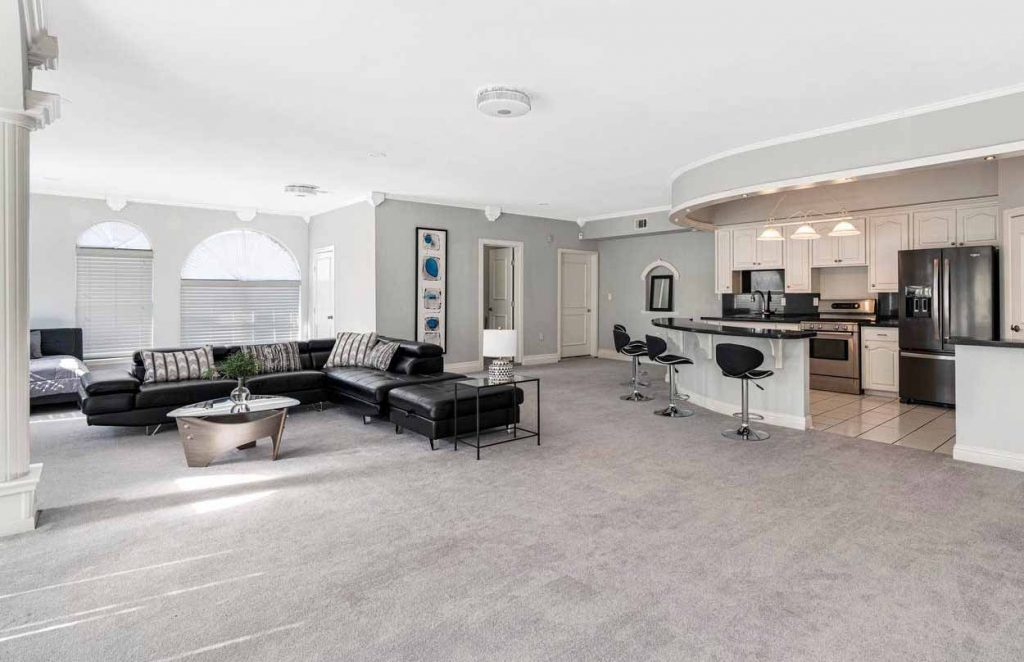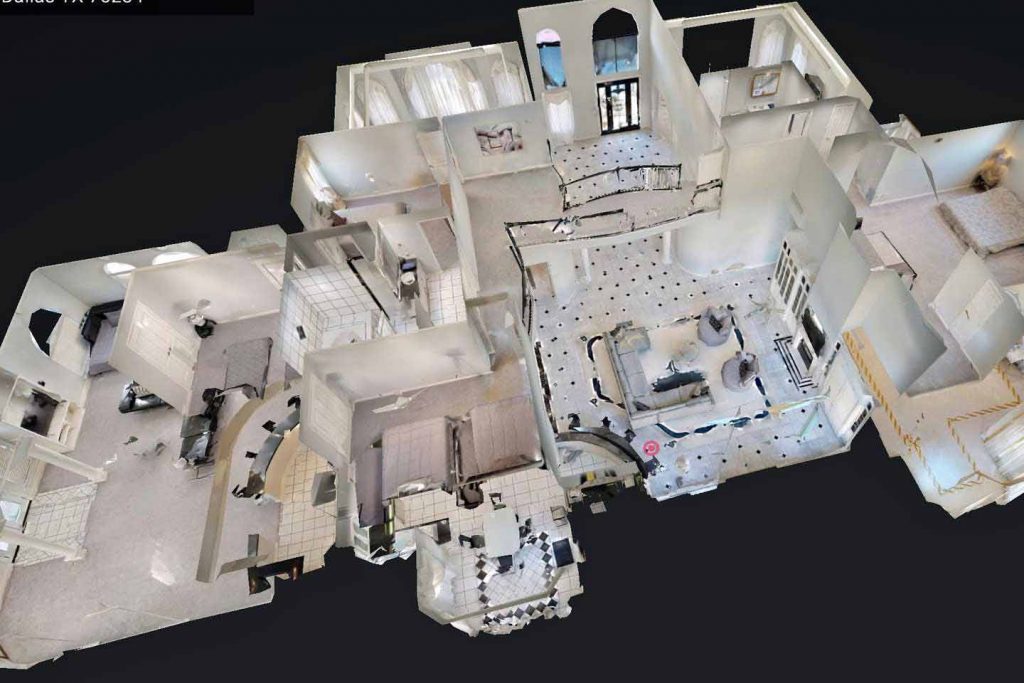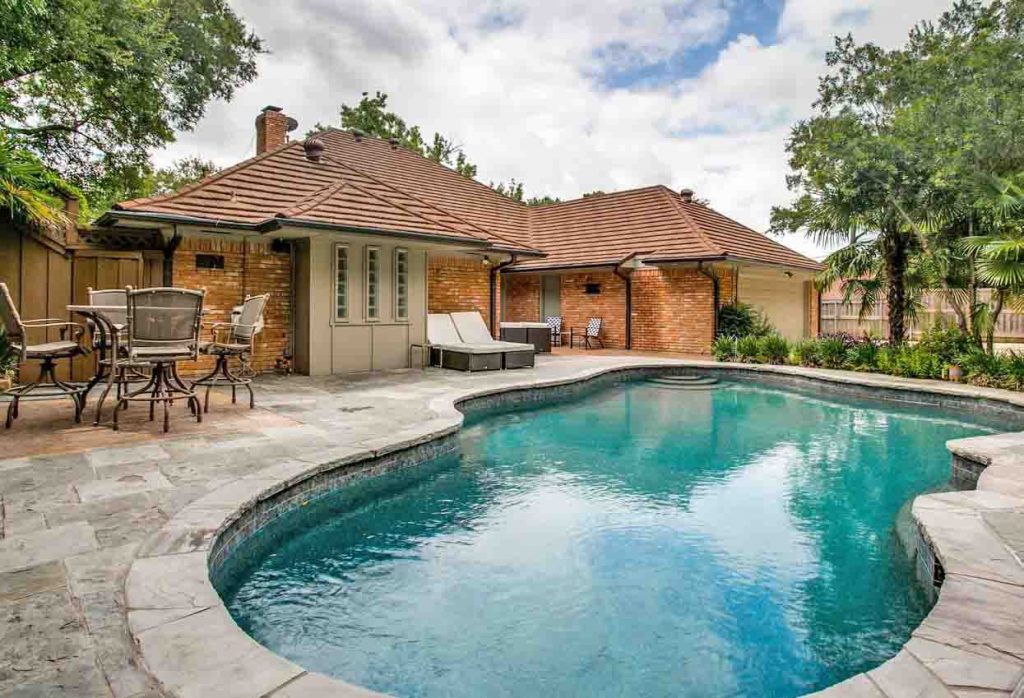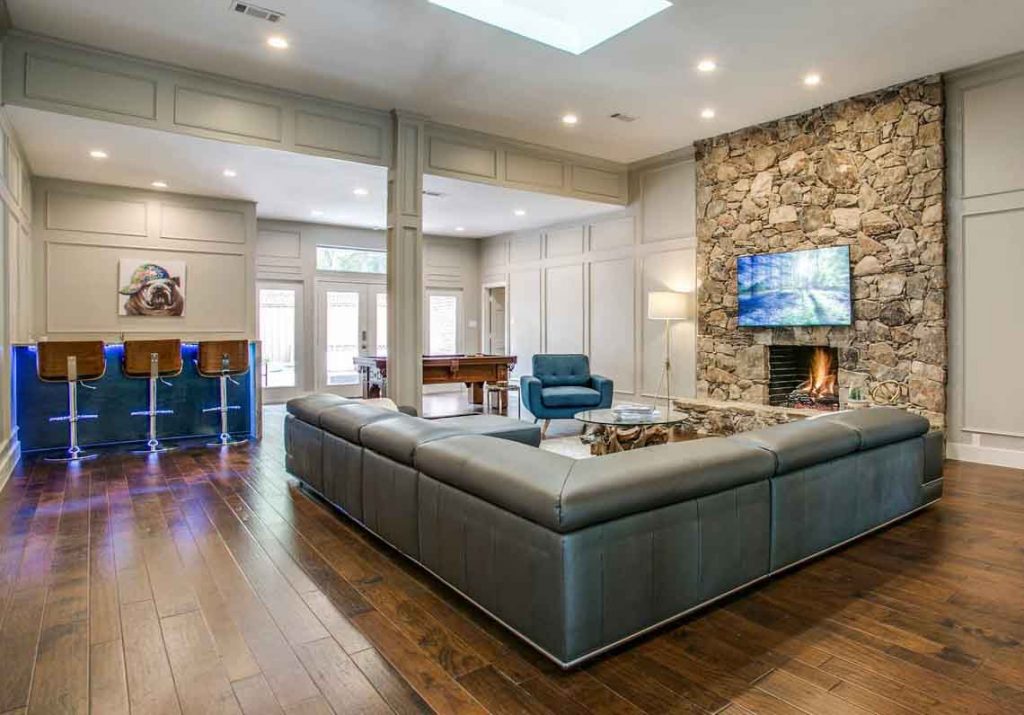Imagine you’re planning a weekend bachelorette party, baby shower or pool party in Dallas for 20 of your closest friends, and hosting at your own home won’t do. You rent one of the houses springing up on Airbnb and Vrbo all over Lake Highlands where guests can lounge by the pool, watch movies or games on 70-inch TVs and chat around big rounded couches or outdoor conversation pits.
Let the party begin.
Imagine now that you live next door to one of these party homes. Each night brings more cars, more music blaring from backyard speakers and more trash left in the street.
Pressured by fed up neighbors, the Dallas City Council last Tuesday directed city staff members to create a task force on regulating short term rental sites. Though short-term rental owners are already required to register with the city, only about 400 of the estimated 1,200 properties currently on the market are registered and reporting their hotel occupancy taxes monthly, city officials said. Airbnb alone reported more than 387,000 guests in Dallas County last year, with their hosts earning $57.4 million.
Type one of Lake Highlands’ 3 zip codes into the short-term rental websites, and you may be surprised at your options. Large houses have been remodeled to maximize the number of people who can sleep in each home, and glitzy entertainment areas have been added. What they lack, say neighbors, is sound buffers, sufficient parking and guests willing to consider the neighbors next door.
“I’ve personally had to call 911 multiple times with no response,” says Paul Broome, who lives next to the popular Airbnb property on Abrams Road next to Starbucks listed as a 6 bedroom, 4.5 bath mansion. “It looks like Deep Ellum around my house – noise, trash, cars – all sorts of things.”
The parties usually run from 9 p.m. to 3 a.m., he says, but some can go around the clock.
“They park the wrong way on the street and they block my garage. We set out orange cones to deter parking, but it hasn’t gotten any better. They’ve knocked on our neighbor’s door at night. I’ve lived here all my life, and I wouldn’t want to live next to it. I want to see it come to an end.”
“It’s going to get worse before it gets better,” continues Bloome. “We’ve tried everything. We’ve called 311 and 911, we’ve reached out to the property managers next door because [renters] park at Starbuck’s and Dallas Ballet Center, we’ve complained to Airbnb and Vrbo but they don’t make it easy.”
Diana Milan’s experience has been similar. Blake Arrant purchased the house next to hers on Club Glen near Forest Meadow Junior High. When renovations were completed, the house went up on Airbnb.com.
“Some nights it gets loud,” Milan says, “so I’ve called the cops a couple of times. That’s not a good use of their resources. The police ask me, ‘Can you not just go over and talk to them?’ I didn’t even know what marijuana smelled like, but I do now. I shouldn’t have to go over there.”
Arrant says he tries his best to keep neighbors happy, and renters must agree to abide by house rules set by each owner. His rules prohibit smoking inside the home, animals on the property and guests without permission. Renters promise to move the festivities inside by 10:30 p.m. and pay fees for vomit or repairs. If police are called, renters are subject to loss of deposit. He doesn’t sign guests younger than 25 and refuses to rent to locals unless they’ve been displaced by renovations or the recent tornado.
“I never rent to locals. Those are the problem renters,” he says.
Bloome predicts spring temperatures will bring a whole new round of problems.
“When the weather gets nicer, we expect it to get worse as partiers spend more time by the pool,” he says. “The biggest issue for me is the homeowner is not physically in the home. If you wanted to have a party with 100 people once a year, more power to you. This is different. To me, these people are there illegally. They don’t live in the house and they don’t belong in the neighborhood. They’re not what we want in Lake Highlands.”
Milan isn’t convinced the city council’s new task force will resolve the issue, especially if they remain focused on revenue.
“I saw in the Dallas Morning News that city council members want to make sure owners have registered and are paying taxes, but producing a revenue stream for the city doesn’t solve the problem,” said Milan. “That does nothing for the neighborhood. They shouldn’t be able to have this in a residential neighborhood. The council also said they were worried about ‘poorly run’ rentals, but these are not poorly run. They just bring large numbers of outsiders into our residential neighborhood every night. People think it’s illegal. That’s what we thought.”
Councilman David Blewett, who represents parts of downtown and Uptown, said short term rentals like these “are a threat to our single family neighborhoods.” He indicated that he’s ready to support regulations designed to protect neighbors, with after-hours code enforcement funded by fees for non-compliant owners.
“I could see entire blocks becoming Airbnbs because no one else will live there,” he said.
“There are a lot of issues to consider,” said Deputy Mayor Pro Tem Adam McGough, “including state pre-emption, challenges with enforcement, and striking a balance between overregulation and protecting our neighborhoods. While we do not want to overregulate compliant properties, the impact of misuse, of creating party houses and other unsafe or nuisance properties in our neighborhoods, is completely unacceptable. We must have mechanisms in place to hold owners accountable, and to effectively address situations that tend to hold our neighbors hostage in their own homes.”
The new task force is expected to report their recommendations to the city council in a few months.

